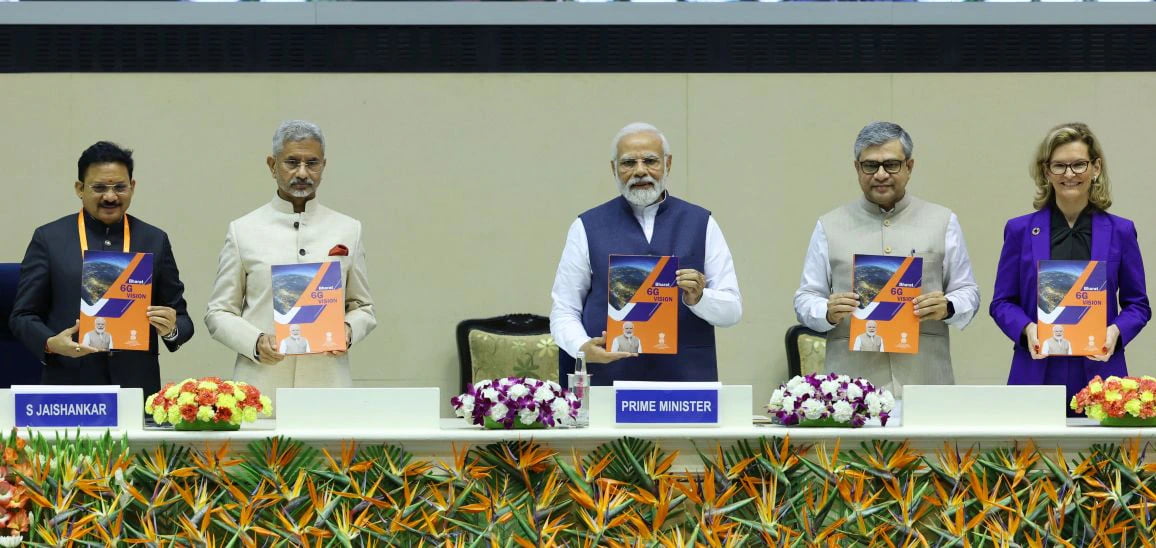PM Modi unveils India’s 6G vision document that eyes service rollout by 2030

According to a vision paper published by Prime Minister Narendra Modi on Wednesday, India is preparing to roll out high-speed 6G communication services by 2030 and has established the Bharat 6G initiative to discover and support the development and deployment of the next-generation technology in the country.
India’s 6G project will be implemented in two phases, and the government has also appointed an apex council to oversee the project and focus on issues such as standardisation, identification of the spectrum for 6G usage, create an ecosystem for devices and systems, and figure out finances for research and development, among other things.
While, technically, 6G does not exist today, it has been envisaged as a considerably improved technology providing internet speeds up to 100 times faster than 5G.
The apex council will facilitate and finance 6G technology research and development by Indian startups, companies, research bodies, and universities. It will strive to enable India to become a major worldwide supplier of intellectual property, goods and solutions of inexpensive 6G telecom solutions and select priority areas for 6G research based on India’s competitive advantages.
The council will emphasise new technologies such as Terahertz communication, radio interfaces, tactile internet, artificial intelligence for connected intelligence, new encoding methods, and waveform chipsets for 6G devices.
“Within six months of the implementation of 5G technology, we’ll be talking about 6G,” stated the prime minister. This, he remarked, shows the confidence of the country. “Before 4G, India was only a user of telecom technology; now, India is rapidly becoming a major exporter of telecom technology,” he added.
Modi formally launched 5G services in October 2022, stating that India should be ready to launch 6G services within the next ten years. In contrast to 5G, which at its peak can provide internet speeds of up to 10 Gbps, 6G promises ultra-low latency and speeds of up to 1 Tbps.
As per the vision document, 6G use cases will include remote-controlled factories, constantly communicating self-driven cars and smart wearables taking inputs directly from human senses. However, while 6G promises growth, it must be balanced with sustainability because most 6G supporting communication devices will be battery-powered and have a significant carbon footprint, according to the document.
As part of its 6G mission, India will identify priority research areas by involving all stakeholders, including industry, academia, and service providers, and will conduct theoretical and simulation studies, proof-of-concept prototypes and demonstrations, and early market interventions via startups.
The project will be implemented in two phases: the first one from 2023 to 2025 and the second one from 2025 to 2030. Exploratory ideas, risky pathways, and proof-of-concept tests will be supported in phase one. Concepts and concepts that show promise and potential for acceptance by the global peer community will be sufficiently supported to develop them to completion, prove their use cases and benefits, and produce implementational IPs and testbeds leading to commercialisation as part of phase two.



